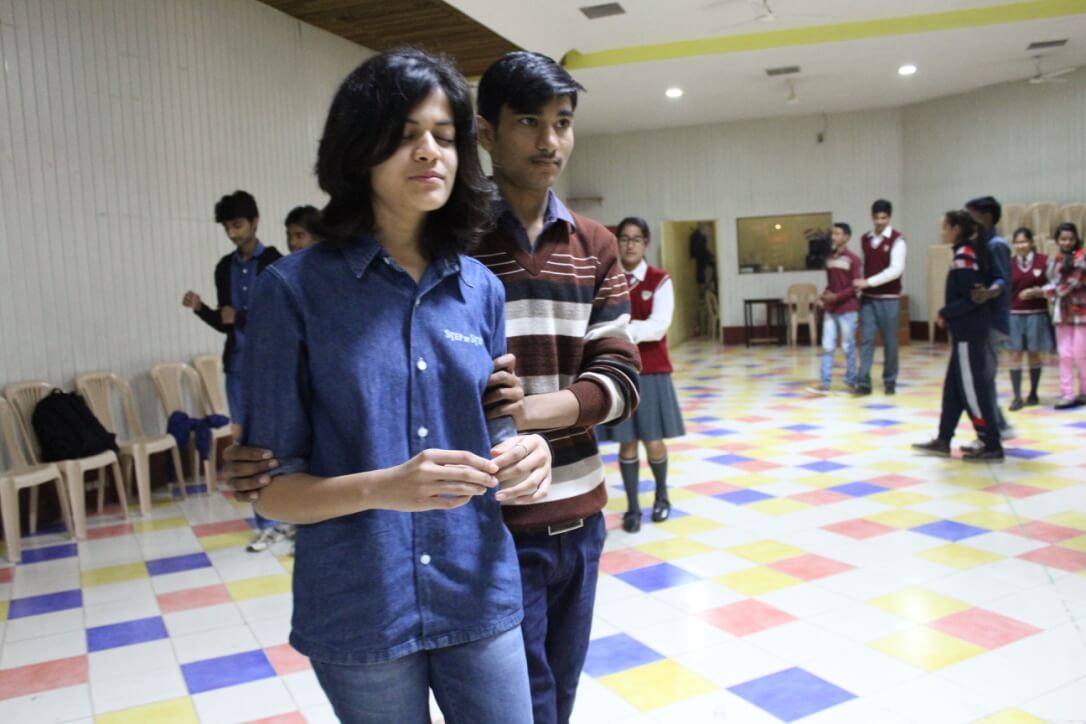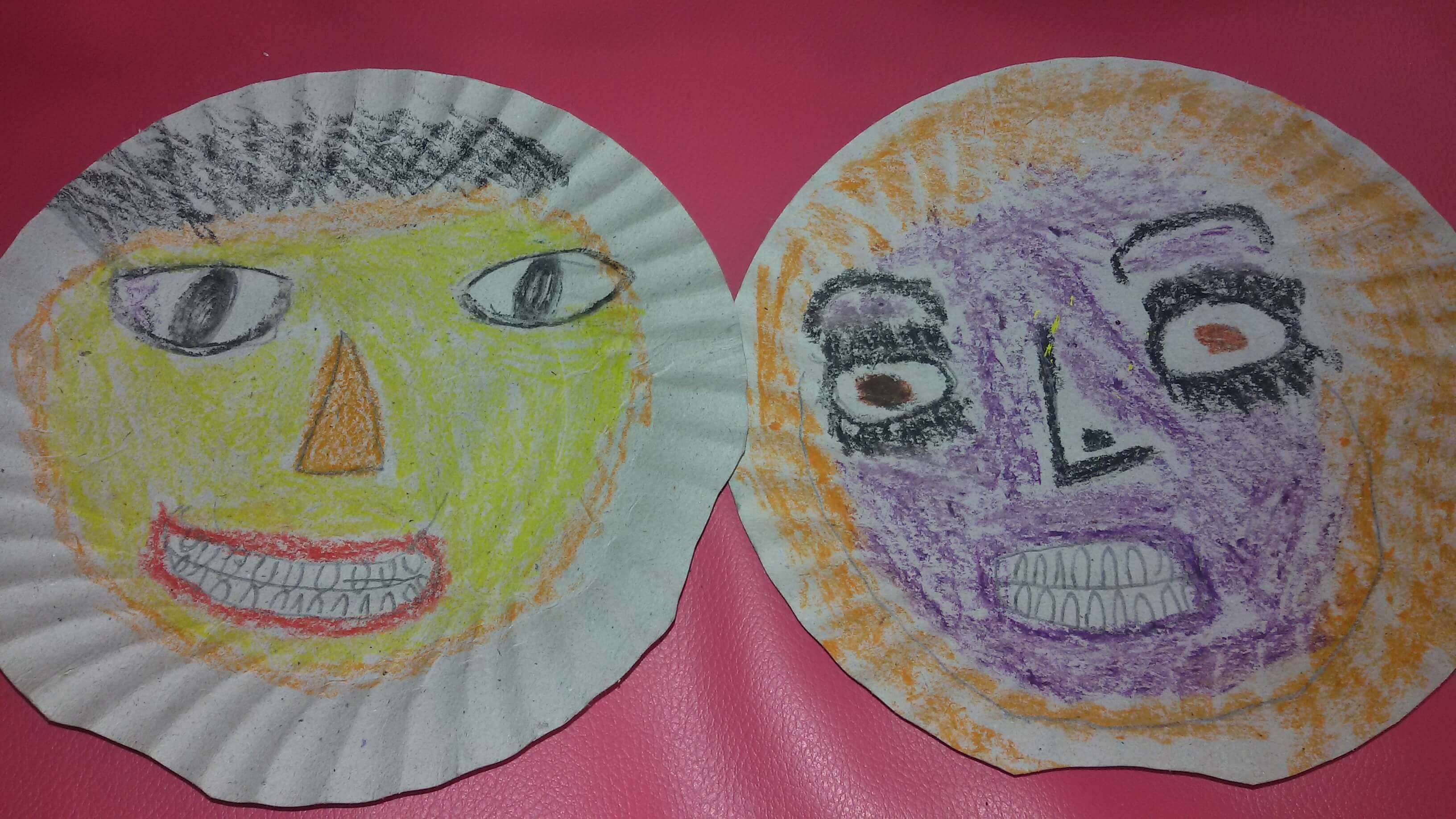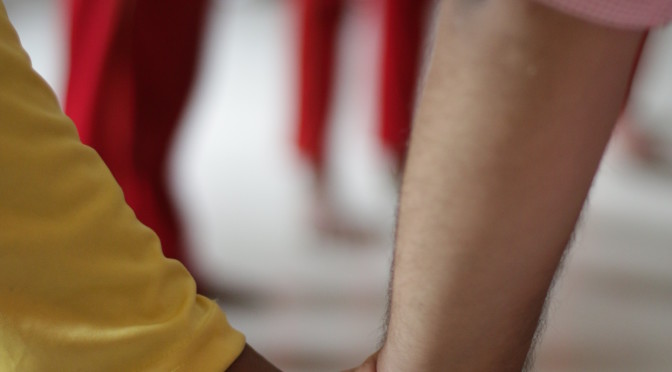Category: Blog
-

Finding Me- Jaipur Diaries
November 8, 2017The finding me workshop has been one of the most amazing things that I have ever experienced. This has truly changed the way I look at life drastically.
Ten days ago, when I entered the workshop, I did not believe in the fact that we, the youth, had the power of affecting and influencing people and encouraging them to be the better people that they are. This workshop has made me aware that people of my age face all kinds of problems. That mine are not the most important. That I am not the only one. It has taught me that everyone in this world, no matter what their caste, creed, color, shape, size; are the same. That we all think alike and experience the same things.
When we set out to spread this message to the youth, the feeling was wonderful. I realized that helping someone else overcome their flaws or plain accepting themselves and others as they are, is the best thing one can do.
I have realized that we, the youth, can make a great impact on the world, to make it a better place for you and for me.
– Simran Jain from Jayshree Periwal High School was one of the participants of the Youth Outreach workshop at Jaipur Literature Festival 2016
-

Dreams and Transformations
Tucked away in North Delhi’s Kingsway Camp is the Seva Kutir complex that houses (among other spaces) an observation home for juvenile’s under trial as well as a detoxification centre for juvenile addicts. The complex is as green and clean as it is militarized with high walls, flood lights, barbed wire, broken glass atop the walls and unforgivingly reinforced metal doors that require Herculean strength to budge. It is hard to enter a space like the observation home without preconceived notions about the incarcerated minors who are temporarily staying there. However, the children effortlessly destroy each and every such notion in a matter of minutes.
Avik Roy and I began our ‘Theatre Workshop’ for the children in the observation home on the 4th of September 2014. Our plan was to have a fluid plan. We wanted to gradually get to know some of the boys as well assess how exactly to go about introducing these young accused boys to the world of theatre. My biggest fear while initiating this process was that the boys would probably scoff at a theatre workshop being held in a halfway house where they do not expect to be lodged for more than a few weeks at most. Majority of the boys expect to be out in a matter of days. We decided that fast paced and energetic games would be the best way to grab their attention and luckily we weren’t entirely wrong. With the legendary ‘Dog and the Bone’ we began a relationship that altered our worldview forever. It is difficult to precisely document all that we felt and observed in the daily 2 hours we spent (and continue to spend) with the boys. Instead, it would be easier to describe some of the things we encountered that were radically different from the expectations that we harboured upon entering the observation home.
Most of our expectations of jail are informed by a great deal of popular culture representation that is fed to us on television and film. The reality of Aadharshila is very different. The children are not cooped into cells but instead have large shared dorms along with well maintained sports fields and courtyards. It is of extreme importance that we remember at all times that these children are not convicts but simply accused of crimes. Many of them are no different from the way we were when we were kids. Even though most of them are school dropouts, their levels of awareness are no less than any child exposed to the same media.
The first few days of the workshop were haphazard because the children (and the two of us) remained entirely unsure about what we were doing. The boys were hesitant and were not particularly interested in the introspective aspects of the games. Some of them would stay for the games they enjoyed and then utilize extremely creative excuses to vamoose at the very point something serious or sombre was being discussed. By day 4 our heads began to droop, two boys broke into a fight and things started were looking stagnant and progress seemed almost impossible. We then realized that we needed to spice things up and start getting the kids to get a sense of acting, character, narrative arc and other simple concepts of theatre. We finally settled on the most trusted group, who showed an initiative to be a part of this process. Some started to get excited at the prospect of performing a play.
We would have preferred if the play had been scripted and written by the children based on their own stories. We had gotten them to share, draw and write about themselves but it remained impossible to get them to create a fiction work, and so we had to take the scripting upon ourselves. The boys thoroughly enjoyed portraying the story of a poor boy who falls into drug addiction and subsequent petty crime which lands him in jail. The performance was cathartic in a way we least expected. The boys had their fellow inmates roaring with laughter and completely immersed in the play. They cheered the boys playing drug addicts but suddenly became pensive and quiet when our young protagonist spoke about his dreams and aspirations. The play ended with each boy telling the audience their name, and what they will be when they return to the world outside.
There has been so much injustice, anger, resentment and frustration that these boys are often lost about how to channelize their emotions. They blame the system, they blame poverty and often just simply do not want to come to terms with their own faults. Our aim was to instill hope and a sense of achievement that could help these teenagers break out of the trap of blaming circumstances and taking control of their own destiny, even if against the odds. It was not just the play, but the entire experience of getting to know these boys that was transformative for all of us involved.
– Shaman Marya is a Law graduate from Delhi University, deeply interested in film making, who has been associated with Yuva Ekta earlier during the 2008 Summer Programme and is now a volunteer with us.
-

Director’s Note
“Didi (sister), will you bring me a Tulsi (basil) plant on your next visit? The Tulsi is sacred; I will put it in my mandir (temple).”
This is the summer of 2009. We are at the Observation Home for Boys at Kingsway Camp, Delhi, surrounded by 25 juvenile offenders who have come to attend my Remedial Drama workshop. We are discussing dreams and aspirations and as the boys share their stories, Rahul asks me for a basil plant.
Robbery, Murder, Rape, Extortion – their crimes are brutal. Each boy feels falsely implicated, believes that the system is working against him. Most come from dysfunctional families, have no Role Models, no Heroes who can inspire them to find a way out of the horrific entanglement of drugs, alcohol and crime.
Our challenge is to make them aware of their choices in every situation, choices that will empower rather than debilitate them. We begin using the tools of Theatre and Expressive Arts and every few months a new intervention convinces me of the possibilities of a new start to these young lives.This is the space from where our play “Bargad Ki Chhaon Mein” is born. Questioning the ever-widening chasm between the marginalized and the privileged, demanding accountability from a society that aspires more for Mercs and Mobiles rather than a qualitative education for all.
We have begun to work at a resettlement slum close by where many juveniles live and as I try to understand complex migration issues, I sometimes falter, grow weary. And then I remember my first conversation with Rahul, seven years ago.
“Rahul, tell me then, where does your God reside?” “In the temple that is within my heart!” he answers. “And when you pick up a knife to kill, where does your God go?” I ask. “Didi, the doors of my temple were open long before and my God has left me. I am still waiting for him to return!”
The Banyan is a healing tree, with a loving, protective aura that embraces all with its grace. Our play attempts to re-create this magical, expansive space in which everyone is welcome.
– Puneeta Roy, Managing Trustee – The Yuva Ekta Foundation, is Writer and Director for the play- ‘Bargad Ki Chhaon Mein- In the shade of the Banyan’ which will be travelling to Glasgow, Scotland in early October as part of National Theatre of Scotland’s project HOME AWAY.
-

Yuva Ekta 2011-Dainiks Volunteer Diary
November 7, 2017April 29, 2014
A year has passed by since the first time I bonded with various people from amazingly differing horizons. Having so many people who are brimming with ideas in one room just makes me go, “Whoa”! I find myself sitting in that same room with gazillions of thoughts that have already taken shape and those which are just ready to burst out.
Vaguely enough, I find myself not on time almost every day. Yet, my un-punctual character is greeted with smiles that peep through to show delight in its full glory. Else, I’m made to do push-ups that just get me even more pumping for the 3 hours that we spend together. The same (or some other ritual) is inflicted on anyone who’s late. Yet, it ends up making that very person sense things with a whole new dimension and a colorful perspective.
So lost in the midst of wonderful people, I find it hard to keep track of my experiences in their chronological order. Each moment is so exciting and stimulating that one gets lost in it like a man would in a universe filled with shiny stars. And then there are those extra special moments when an otherwise quiet person bursts out with joy on experiencing their new found treasure.
Some do get “tired” in the warm up sessions, but all of that fades away once we start cracking jokes at each other and begin our day. From loud “HA’s” to mind numbing physical exercises, we begin with little bodily and mental modifications every morning. These prep us for the whacky activities that hit us out of the blue. These are followed by more exercises targeted towards new muscles that we discover everyday (some are found inside my highly bald head as well). Sometimes it seems as if flexing my goatee muscles would be easier. Then we “break” off for a sip and a bite and wander around to reboot our complex personal utilities.
Me yelling “GOLA BANAO!” is a common site. After each one of us is back in the “gola”, we break off into groups trying to make tiny scenes of everyday life by pooling in our ideas. Ah! It would’ve been so tranquil if it were that simple! Numbers, losses of consonants, strange situations are only the beginning. Making us think harder, some awesomely beautiful ideas crawl out of nowhere. To state a few, we did sing “Ek, Do, Teen! Char, Paanch, Chey, Saath, Aath, Naw, Dus, Gyara! Bara, Tera!” in a disco scene, and then we broke out in thunderous laughter trying to articulate sentences without their consonants, like “U O-Ot U-Ar Oh!”
Always stumbling upon new ways to entertain each other, we end up learning bucket loads of new things. Three hours fly by as if it were only a minute, a room with tons of commotion falls silent within that minute and “chappals” keep disappearing and turning up at weird places (pranks carefully planned out by a mastermind who is still on the run). And then the long wait for a new day begins…
Danik Ghosh aka Boomba is a Bluebells School International graduate, who was part of the Yuva Ekta Workshops in Summer, 2011.
-

‘FREEDOM TO DREAM’ @ AADHARSHILA HOME
October 6, 2017“I want to complete my education and become a big man one day” – Participant, Aadharshila Home<br>
“I have always wanted to help people and with my work, I’ve managed to fulfill that dream” – Member, Child Welfare Committee<br>
Be it the young, or the younger, everyone dreams. Our dreams connect us to our innocence and light, that makes us one with our being.<br>
The Foundation, on August 25, 2017, conducted a Capacity Building workshop at the Delhi Judicial Academy for members of Child Welfare Committee, Juvenile Justice Board and organisations that work in the sphere of Juvenile Law. A small and engaging performance by the boys from the Adharshila Observation Home titled ‘Khwaabon ke Par’, was followed by an Art activity that engaged all stakeholders on one platform and share their dreams with each other.<br>
A magical afternoon turned surreal because of the interactions that helped everyone understand and empathize with one another. It also promised to bring back the same innocence within all participants that helped them remember their lifelong dreams and aspirations. As our country completes 70 glorious years of its independence, we hope to continue our work with ‘Youth at Risk’ and find ways to connect the young ones with their light, their humility and their passion.<br>
We would thank Gauri Saxena, Mona Sharma and Pankaj Gupta for making this event possible. We would also like to thank our guest facilitators Bani Malhotra, Tavishi Krishna and Ankita Dasgupta for their contribution towards the workshops!
Picture Credits- Aarushi



